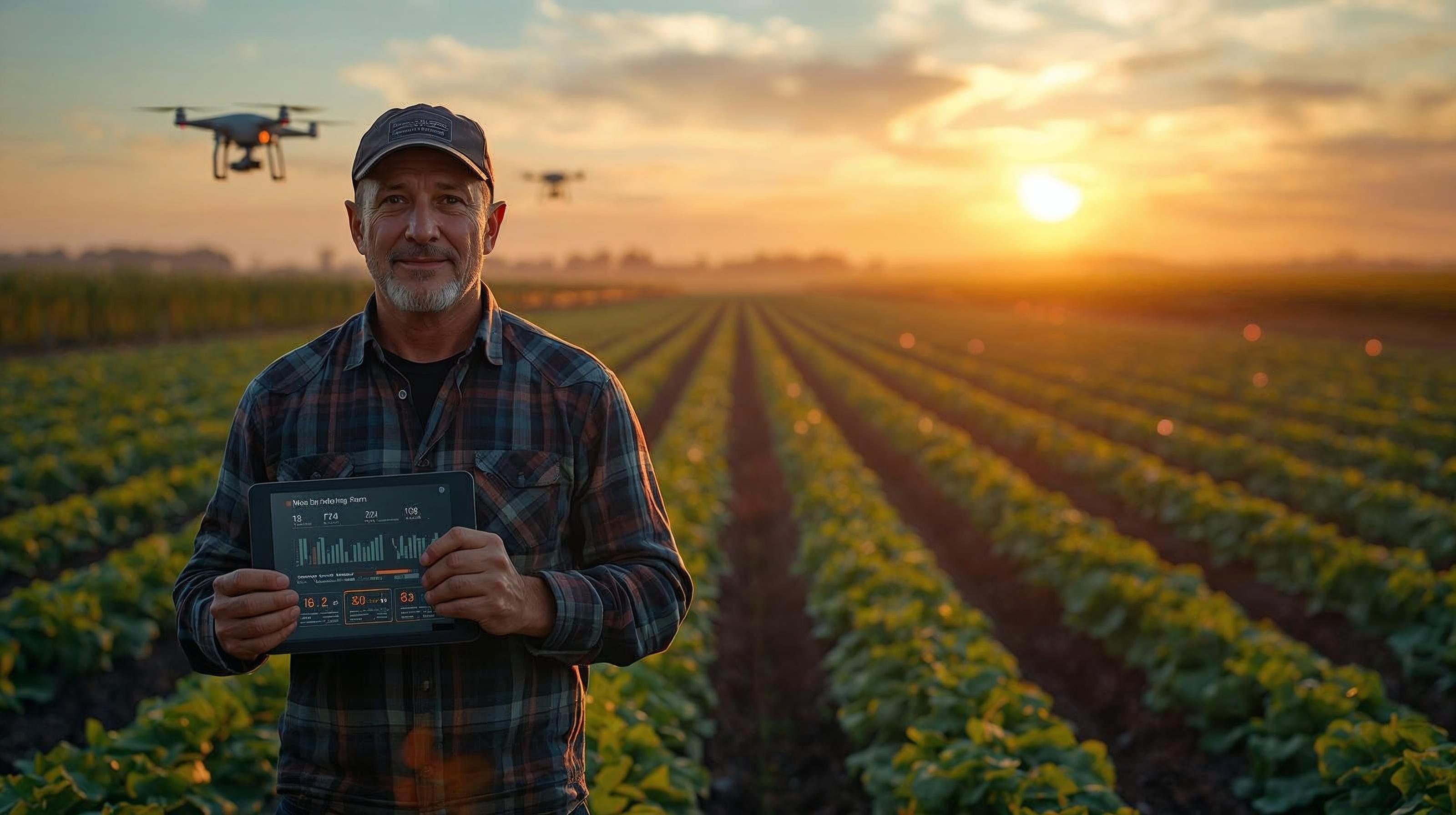For centuries, farmers believed that success was measured in hectares. The more land you owned, the more respect you gained, the more power you carried. That idea built generations of proud, hard-working men and women who thought expansion was the ultimate sign of progress. But in the modern world, the logic has changed. The farms that dominate the future will not be the biggest, but the smartest.
Agriculture today is not a game of territory, it is a game of intelligence. The soil does not reward those who own more of it, but those who understand it better. Each square meter of land carries hidden data, silent patterns, and complex reactions that only science, experience, and technology can interpret. Those who learn to read these signals are the ones who turn farming into a precise art rather than a gamble.
Owning more acres without understanding them is like having a library full of books you never open. The knowledge is there, waiting, but unused. Expansion without insight is not growth, it is distraction. Every farmer knows that more land means more costs, more unpredictability, and more responsibility. But not every farmer realizes that smarter decisions can multiply profit faster than any physical expansion ever could.
The difference between a traditional farmer and a strategic farmer begins with one question: do you control your land, or does your land control you? Many farmers operate on habit.
They plant what their fathers planted. They harvest when they always have. They sell to the same buyers, at the same prices, regardless of market shifts. This routine feels safe, but it slowly erodes potential. Tradition without strategy becomes stagnation.
Modern farming requires a new mindset, one that treats every decision like an investment and every season like a data set. Farmers who analyze soil behavior, track microclimates, and study market signals can outperform competitors with ten times their land. It is not luck; it is leverage. Precision turns effort into efficiency, and efficiency turns crops into capital.
Technology is not replacing farmers, it is empowering them. A drone is not a toy, it is a lens into the truth of your field. A soil sensor is not an accessory, it is a translator of your land’s health. AI models are not complex luxuries, they are predictive allies that help you act before problems become losses. With the right tools, farmers can do what was once impossible: anticipate, adapt, and accelerate.
But even technology is useless without strategy. A tractor guided by data is powerful, but a farmer guided by purpose is unstoppable. Strategy connects every part of your operation, from soil management to market entry, into one coherent system where nothing is random. It transforms chaos into clarity. You stop reacting and start designing.
This is why at Farmvanta we focus not on helping farmers buy more land, but on helping them understand and maximize what they already have. We build systems that think alongside you, analyze your fields, monitor your performance, and translate complex data into simple, actionable steps. We believe in intelligent agriculture, where every drop of water, every gram of fertilizer, and every hour of labor contributes to measurable growth.
True innovation in farming is not about machinery, it is about mastery. It is about shifting from intuition to insight, from repetition to refinement. When knowledge replaces assumption, your yields rise, your costs drop, and your stress disappears. That is not just progress, that is transformation.
Farming has always been an act of courage. You face weather, market volatility, and uncertainty every single day. But the strongest farmers are not those who fight harder, they are those who plan smarter. Strategy is the shield that protects you from randomness, and knowledge is the weapon that helps you grow regardless of the storm.
In the old world, the question was “How much land do you own?”
In the new world, the question is “How well do you understand your land?”
Growth in modern agriculture is not about more acres, it is about more awareness. The farmers who will lead the next generation are those who think like scientists, act like entrepreneurs, and feel like caretakers of the Earth. They understand that expansion begins in the mind before it reaches the soil.
Your farm doesn’t need more land, it needs better strategy, better understanding, and better execution. The future belongs to the strategic farmer, the one who sees what others ignore, measures what others guess, and builds what others only dream of.


